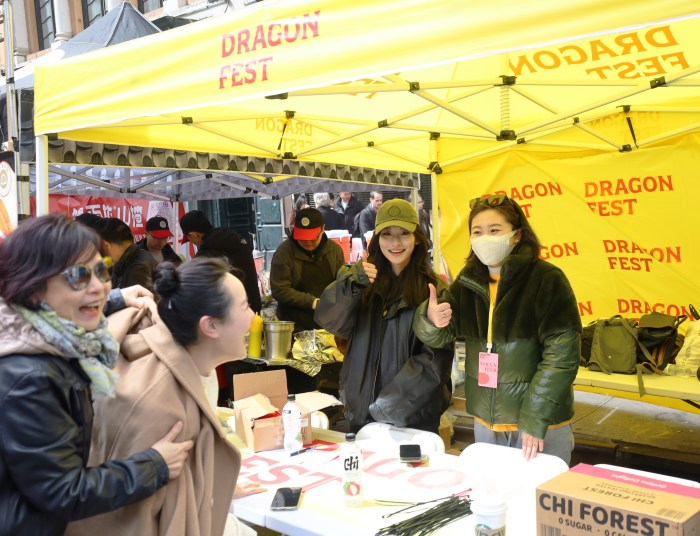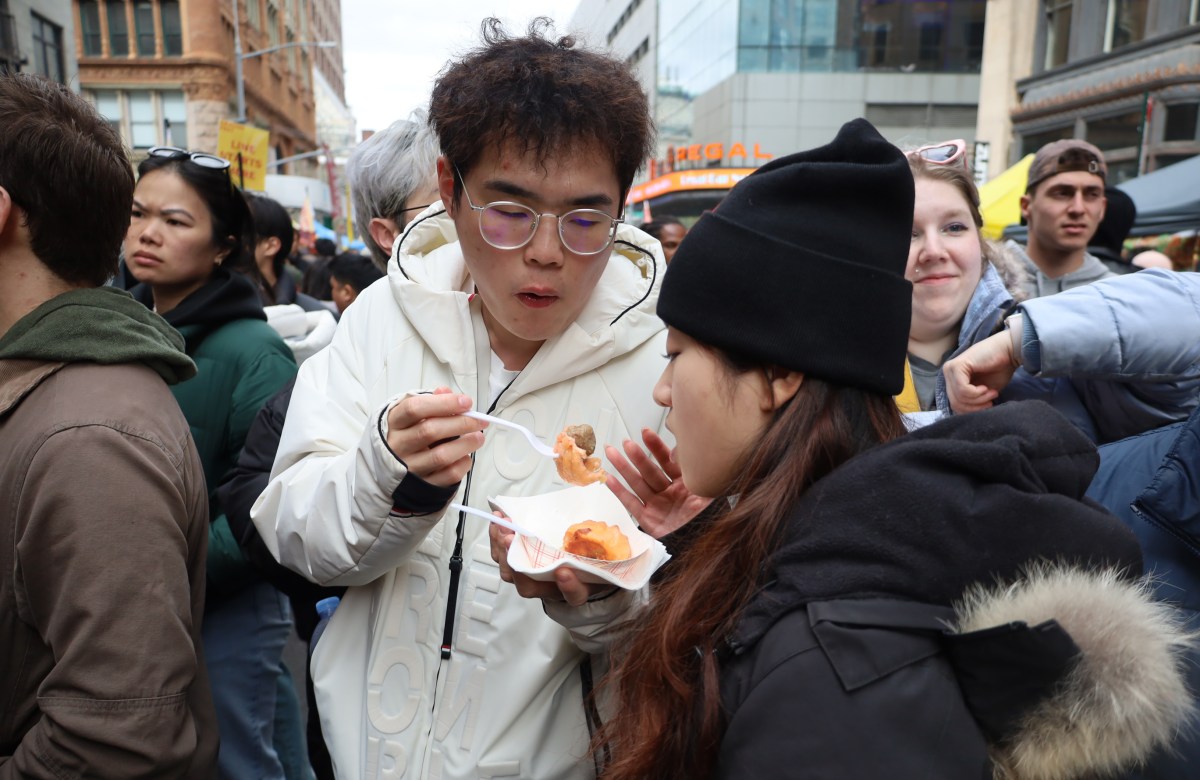The smell of Chinese five-spice powder filled the air south of Union Square last weekend as Dragonfest – the only Chinese food and culture festival in New York City — returned after a successful inaugural year.
Established in 2023 by lifestyle and hospitality media guru, Biubiu Xu, Dragonfest began as a modest enterprise to help spread knowledge of Chinese cuisine and identity. The first iteration started with five events in Washington Square Park. This year, the Chinese food bonanza hosts up to 70 different vendors over 16 events in varying locations across Manhattan, Brooklyn and Queens.
“There is over 100 Chinese snacks in one street,” said Xu who was donning a baby bump and a pearl-colored qipao – a traditional Chinese silk dress.
Amongst Xu’s favorite Chinese snacks are xiao long bao (soup dumplings), which she admitted craving while pregnant with her “dragon baby,” as she calls it; and tanghulu, which were carried around like torches at the festival. The sweet treat, believed to be hundreds of years old, consists of colorful fruits stacked on a bamboo skewer and dipped into a simple syrup which hardens like glass and cracks under your teeth.
The Chinese lollipop has seen recent viral fame on social media, especially amongst Autonomous Sensory Meridian Response accounts aka ASMR.
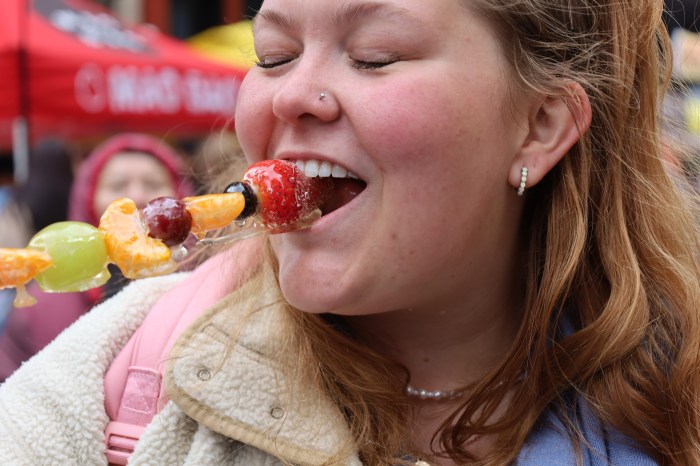
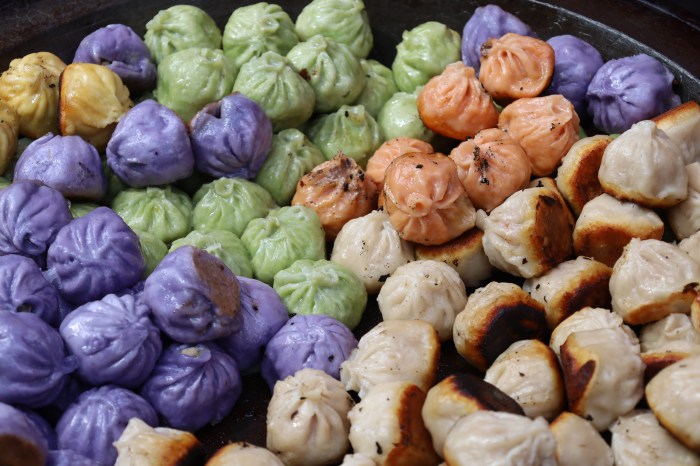
Baos were also pervasive at Dragonfest as several vendors enticed hungry bellies with their versions of the warm doughy buns filled with everything from pork to soup to vegetables and served in a variety of colors.
Nan Xiang Xiao Long Bao had a tent at Dragonfest and was out celebrating the chain’s fourth location at 15 St. Marks Place. Their flagship spot opened nearly 20 years ago in Flushing and while Nan Xiang’s claim to fame is their bao buns, it was their pork wontons swimming in a sweet and creamy peanut sauce that left a lasting impression and a welcome unctuousness on the lips.
Ivy Chen was out making magic at her stand with the traditional Chinese sweet of dragon’s beard candy. Chen repeatedly pulled and tossed an amber-colored blob of taffy in confectioner’s sugar until all she was left with was a pile of candy floss.
“When I was a kid, I saw a lot of candy makers [and] Chinese confections around me. I didn’t know what was that, but what they were doing was very fascinating for me,” said Chen, who grew up in Fujian, China and came to New York in 2015 to become a pastry chef. While in culinary school, she noticed dessert-making techniques like those she saw from the street vendors of her youth.
“I was like, wait a minute, aren’t these the Chinese candy that I saw when I was in childhood?” she recalled asking herself when the lightbulb went off, and Chen started to make and sell her own dragon’s beard candy just a few months ago.
While she has no brick and mortar location, she can be found at Dragonfest and @dragonlulu.nyc on Instagram.
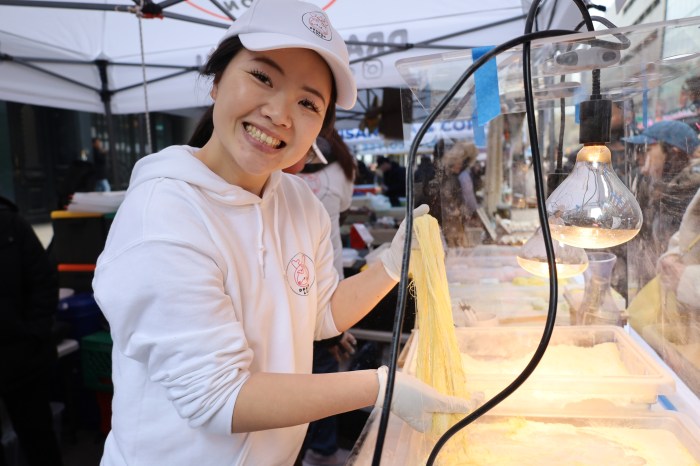
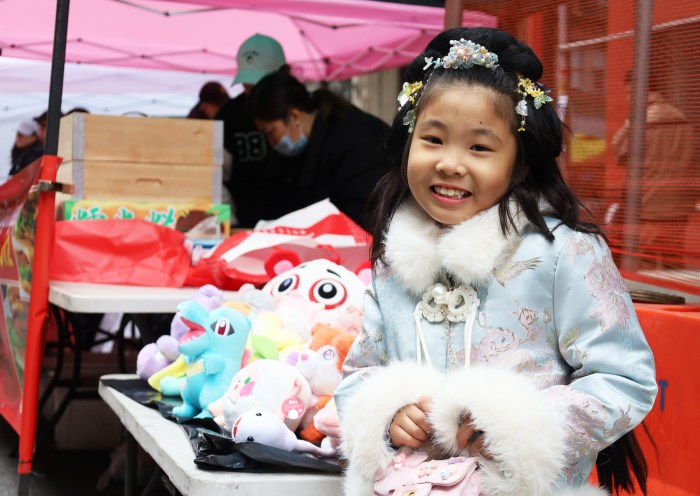
There was also “Bombcorn Chicken” selling the popular Taiwanese street food of fried chicken bits dressed with a generous seasoning of salt and black pepper. The snack wasn’t referred to as “popcorn chicken” until it was “invented” by Eugene Gagliardi, who then sold his patent to Kentucky Fried Chicken in the early 1990s.
And if you leave trying only one thing, the durian egg tart from Na Tart – “the first experimental egg tart lab in NYC” – is a must.
The palm-sized pastry, filled with a warm, creamy custard radiates the smell of butter. A luscious sweetness coats the tongue on first bite as powdered sugar and bits of flaky crust fall to the floor and likely all over your shirt.
As your teeth dig closer to the center, you are hit with that infamous durian taste which comes off like caramelized onions making this delectable treat both, sweet and savory and one of the most unique and unforgettable things you will eat.
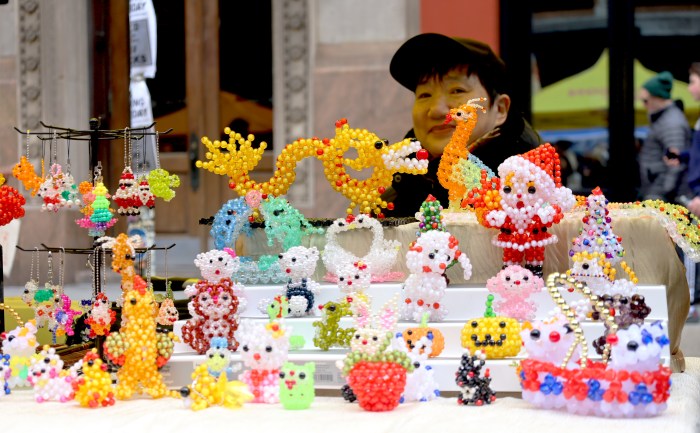
Building connections
Festivals such as this help ameliorate misunderstandings and forge connections.
Dragonfest was about five years in the making when the COVID-19 pandemic stopped the world in its tracks and any plans anyone thought they had. As news of the pandemic revealed the source of the virus to be from Wuhan, China, hate crimes against Asians became so prolific and ubiquitous, a national campaign to “Stop Asian Hate” was founded in March 2021.
A poll conducted by Pew Research the same year revealed that 81% of Asian Americans noticed an increase in racially-charged violence against them and 41% experienced that violence first-hand.
“During COVID, there were so many opinions about China and for a lot of bad things,” said Xu, the festival’s creator. “So, I really wanted to help our community to do something [and] I think food and culture [is] always the best of things to be a bridge.”
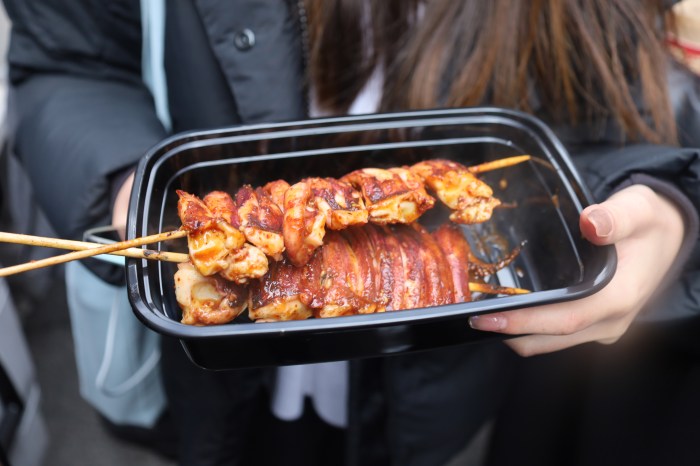
From pizza to Chinese takeout, the history of eateries in New York City is a delicious tapestry woven over time and across cultures, the Chinese notwithstanding.
A New York Times article from 1946 places a singular Chinese man settling on Pell Street (modern-day Chinatown) by way of San Francisco in 1867. Little did anyone suspect that a century later, that area would thrive as an enclave and cultural epicenter for Chinese immigrants in the U.S. Chinatowns across NYC, and any ethnically concentrated neighborhood for that matter, are a testament to the impact immigrants have made on what we eat.
“People like to know culture through the food,” Xu told amNY Metro.
Find your favorite Chinese snacks or discover some new ones as events take place every other weekend through October and run from 10 a.m. to 6 p.m., but crowds form quickly so, arrive early. Check the schedule at dragonfests.com for a Dragonfest near you.
